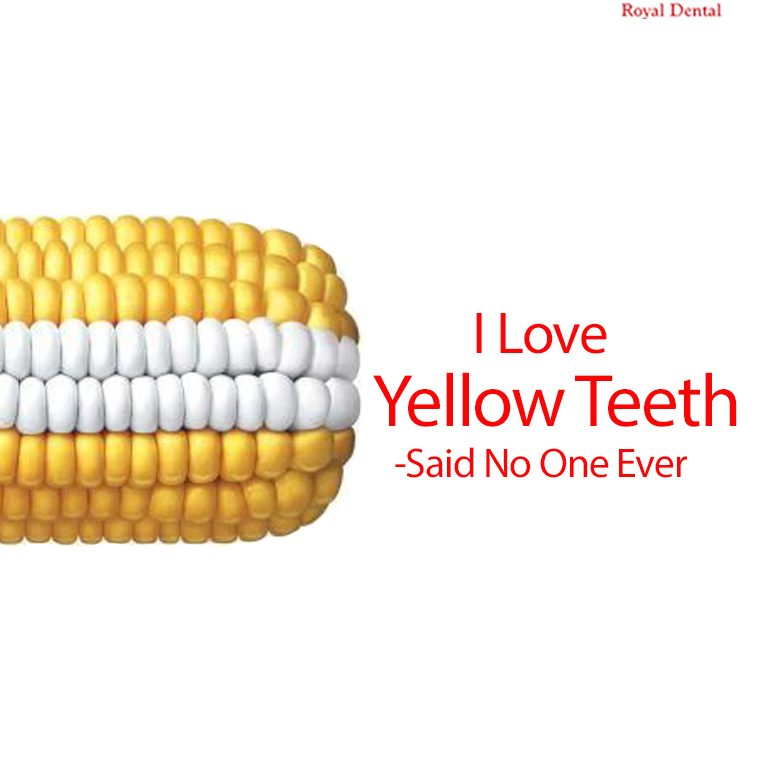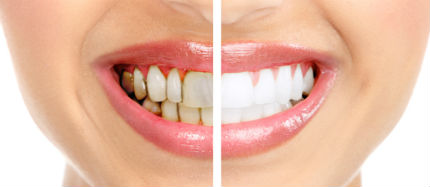We’re glad you found your way to the Royal Dental Clinics blog, where we hope you’ll find helpful information and insightful opinions on all things related to your teeth and gums. In this article, we will explore the age-old practice of brushing with baking soda and its purported teeth whitening benefits. Join Dr. Chirag Chamria, a renowned dentist at Royal Dental Clinics, as he sheds light on the effectiveness of this natural remedy for achieving a brighter smile.
Understanding Baking Soda
Also known as sodium bicarbonate, is a versatile household ingredient that has gained popularity for its various applications, including oral health. When it comes to teeth whitening, it has been widely recognized for its mild abrasive properties and alkaline nature.
Baking soda is a white crystalline powder that is composed of sodium, hydrogen, carbon, and oxygen. It is a weak alkaline compound, meaning it has a high pH level. This alkalinity makes it effective in neutralizing acids, which can be beneficial for maintaining a healthy oral environment.

In the context of teeth whitening, it works by gently removing surface stains and discoloration from the teeth. Its mild abrasiveness enables it to scrub away plaque and extrinsic stains caused by factors such as food, beverages, and tobacco. It is important to note that baking soda is not effective in removing intrinsic stains, which are stains that originate from within the tooth structure.
The abrasive action of it is what sets it apart as a teeth whitening agent. When mixed with toothpaste or used alone, the baking soda particles help mechanically remove stains from the tooth surface without causing significant damage to the enamel. However, it is important to use it in moderation and with proper technique to prevent enamel erosion and tooth sensitivity.
It is worth mentioning that baking soda’s whitening effects may not be immediate or dramatic.
Consistent use over a period of time is required to see noticeable results. Therefore, patience and persistence are key when incorporating it into your oral care routine.
How does Baking Soda Whiten Teeth?
Brushing with baking soda has gained popularity as a natural remedy for teeth whitening due to its ability to remove surface stains and discoloration. Understanding how it works to whiten teeth can help us appreciate its effectiveness and limitations.
The primary reason baking soda is effective in whitening teeth is its mild abrasive properties. The texture of baking soda particles is slightly gritty, allowing them to act as a gentle scrubbing agent. When you brush your teeth with it, these particles help to physically remove plaque and surface stains from the tooth enamel.

Plaque is a sticky film that forms on the teeth, harboring bacteria and contributing to tooth discoloration. Baking soda’s abrasiveness helps break down this plaque and remove it from the tooth surface, revealing a cleaner and brighter appearance.
Baking soda’s alkalinity and abrasiveness whiten teeth. Bacteria and acidic foods naturally acidify our mouths. Acids damage enamel and discolor teeth. It neutralizes acidity and alkalizes the tongue. It reduces acidity, preventing enamel degradation and new stains.
Science behind Baking Soda’s Effectiveness
The effectiveness of it as a teeth whitening agent has been the subject of scientific research and investigation. Several studies have explored the scientific basis behind baking soda’s ability to whiten teeth, shedding light on its mechanisms and outcomes.
Let’s delve into the science behind baking soda’s effectiveness in teeth whitening.
Abrasive Action: Baking soda’s slight abrasiveness whitens teeth. Baking soda’s abrasiveness removes surface stains and tooth plaque, according to studies. It gently scrubs extrinsic stains off tooth enamel. When used properly, baking soda’s abrasiveness is modest compared to other commercial whitening treatments, reducing enamel damage.
pH Balancing: Baking soda’s alkalinity helps whiten teeth. Oral germs and meals acidify our mouths. Acids damage tooth enamel and discolor teeth. Alkaline baking soda neutralizes the mouth’s acidic environment, minimizing acid erosion and improving oral ph. It prevents enamel degradation and new stains by maintaining an alkaline environment.
Plaque Disruption: Bacteria and dirt cling to tooth surfaces to form dental plaque. Plaque causes tooth discolouration and extrinsic stains. Baking soda’s antibacterial and mechanical capabilities impede plaque development and bacterial growth, according to studies. Baking soda removes plaque and reduces tooth discoloration.
Reduction of Surface Roughness: Baking soda has been studied on tooth surface roughness. The Journal of Clinical Dentistry reported that baking soda toothpaste reduces tooth surface roughness. Smoother teeth reflect light more evenly and seem whiter.
Safe Usage and Precautions
Consult with a Dental Professional: Consult Dr. Chamria before using it for teeth whitening. They may evaluate your dental health and provide baking soda suggestions. If you have tooth decay, gum disease, or tooth sensitivity, this is crucial.
Moderation is Key: Use it sparingly. Overuse may cause enamel loss and dental discomfort. Baking soda should be used a few times a week, not everyday. Alternating between conventional toothpaste and baking soda may assist maintain dental hygiene.
Proper Technique: Brush baking soda softly and properly. Sprinkle baking soda on a moist toothbrush or combine it with toothpaste. Circularly brush all dental surfaces. Scrubbing and pressure may harm enamel.
Rinse Thoroughly: To eliminate baking soda residue, rinse your mouth with water after brushing. To remove all baking soda, rinse your mouth for 30 seconds.

Avoid Ingestion: Baking soda should not be overconsumed. Swallowing large amounts might cause stomach pain and electrolyte abnormalities. After brushing, rinse your mouth and spit out baking soda.
Monitor Tooth Sensitivity: If baking soda causes dental sensitivity or pain, stop using and see your dentist. Tooth sensitivity may suggest enamel degradation or dental disorders that need expert treatment.
Consider Professional Whitening: It may eliminate superficial stains, but professional teeth whitening from Royal Dental Clinics may be more effective. expert whitening, personalized to your requirements and supervised by an expert, might provide quicker and better results.
Combining Baking Soda with Other Ingredients
Some individuals prefer to enhance the teeth whitening effects of baking soda by combining it with other natural ingredients. For example, mixing baking soda with hydrogen peroxide or lemon juice can create a paste that may have additional whitening properties. Hydrogen peroxide is a common ingredient in many commercial teeth whitening products, known for its ability to break down stains and lighten tooth color.
Lemon juice contains citric acid, which has mild bleaching properties. However, it’s important to exercise caution when experimenting with such mixtures. Both hydrogen peroxide and citric acid can be acidic and potentially harmful to the tooth enamel if used in excessive amounts or for extended periods. It is advisable to consult with Dr. Chamria, before trying any DIY mixtures to ensure they are safe and appropriate for your specific dental needs.
Professional Teeth Whitening vs. Baking Soda
When it comes to teeth whitening, there are two main options to consider: professional teeth whitening treatments offered by dental clinics like Royal Dental Clinics, and the use of it as a natural remedy. Let’s compare the benefits and differences of these two approaches:
Effectiveness: Professional teeth whitening is more effective and quicker than baking soda. Professional-grade whitening products remove external and intrinsic stains better. Professional treatments utilize more whitening chemicals, resulting in more dramatic whitening.
Customization: Professional teeth whitening may be personalized. A dentist may evaluate your teeth, establish the reason of discolouration, and provide therapy. They may alter therapy intensity and duration to maximize outcomes and minimize sensitivity.
Safety and Supervision: Professional teeth whitening is safe and low-risk when done by a dentist. Dentists assess dental health and recommend whitening methods. They may also advise on any challenges that occur.
Speed and Convenience: Professional teeth whitening usually works faster than it. Dental clinics provide convenient take-home kits and one-visit treatments.
Long-lasting Results: Professional tooth whitening procedures outlast it. Professional whitening may last months or years if maintained. Dental practitioners may advise on post-treatment maintenance to prolong results.
Potential Risks and Side Effects: Baking soda misuse may cause enamel loss and dental discomfort. Professional teeth whitening under dentist supervision reduces dangers and adverse effects. Dentists monitor and preserve gums throughout treatment.
Conclusion
In conclusion, brushing with baking soda can provide some teeth whitening benefits, but it is not a substitute for professional dental care. It is crucial to approach any teeth whitening treatment, including natural remedies, with caution and consult with Dr. Chirag Chamria before use. Remember, maintaining good oral hygiene practices, regular dental check-ups, and professional teeth whitening treatments, when necessary, are the key to achieving a brighter, healthier smile.
© All rights reserved by Royal Dental Implants Pvt Ltd
Issued in public interest






